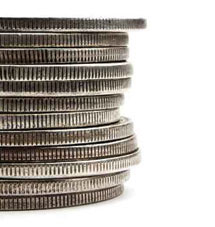
ANSWERS / Ethical Lapses
Are you concerned about a steady stream of ethical lapses on Wall Street?
Let's not kid ourselves, there will always be people who do what is wrong because it profits them, makes them feel more important, or is just plain exciting; however, some structures are easier to game and get then away with it than others. For instance, the law says that you should not drive down the wrong side of a divided highway – very easy to enforce – as nobody ever does unless it is an honest mistake, as it is likely to lead to a quick death. On the opposite scale is the massive complexity of the US Income Tax Code which leads both to mistakes as well as cheating.
So what's the deal with "ethical lapses" on Wall Street or in the banking system? HSBC just paid a $1.9 BILLION (that's right, not million) dollar fine for laundering money but nobody went to jail; SAC Capital just paid a $602 million fine, had to admit no guilt – how can someone possibly agree to pay a fine this big and not be guilty – but the CEO last year took home $1.4 billion in personal compensation! I could go on, but let's leave it at that.
These things are not just caused by one factor only, but I want to look at the issue of opacity, as that one is quite easy to solve. What do I mean by opacity? Very simply that the current structure of our monetary/banking system makes it impossible to find out what is going on. For instance, please tell me what your bank is going to do with the $100 you have just deposited there. You have absolutely no clue. In a recent speech with I organized, Dr. Bill Poole, the former President of the St. Louis Federal Reserve Bank stated: "Even a Ph.D. economist cannot tell whether a bank is healthy or not." This makes the job of the regulator, the investor, and the interested citizen impossible. Opacity naturally leads to increased criminality.
Part of the Real Money Economy is the Limited Purpose Banking structure endorsed by Dr. Laurence Kotlikoff. Under it, the credit/lending side of bank operations would all be converted to a mutual fund structure, meaning that:
1) Your ordinary deposits at your bank cannot be used for loans or investments by the bank but only for payment transactions (e.g., checks, credit card payments, etc.);
2) Neither can they be leveraged (borrowed against) by the bank;
3) But when you decide that part of your money should go into the savings or credit/lending side of banking operations, you will be given a series of choices as to where to put your money, depending on your appetite for risk, the type of lending you would like (e.g., student loans), and other factors, all structured as normal mutual funds.
4) A more comprehensive description of this is found in the paper The Economic Consequences of the Vickers Commission.
What would be the result? Opacity largely disappears, as you, the regulator, and anyone else interested, can now see where the money comes from and where it is going. It would result in a huge decrease in those "ethical lapses".
Would this be heaven on earth? No, but it sure would be a great improvement!